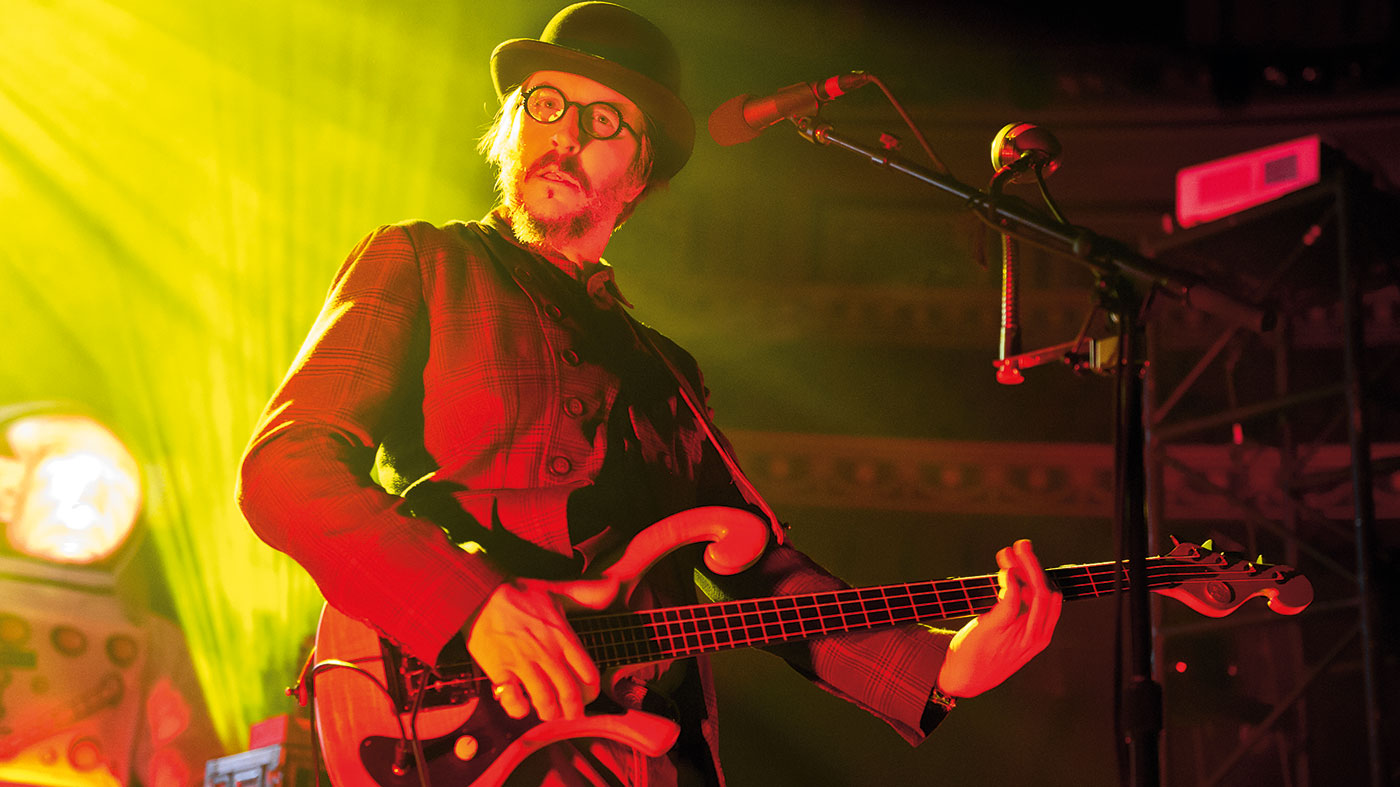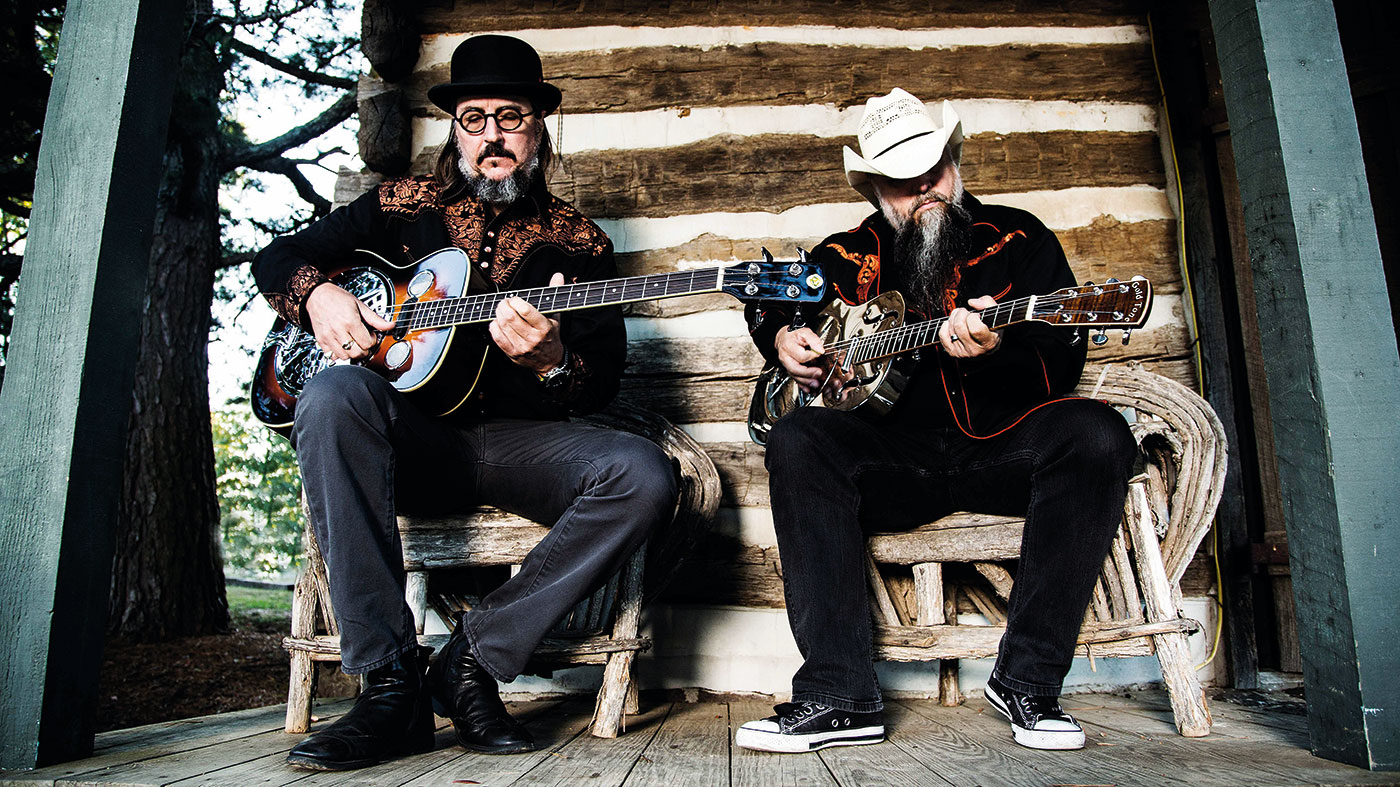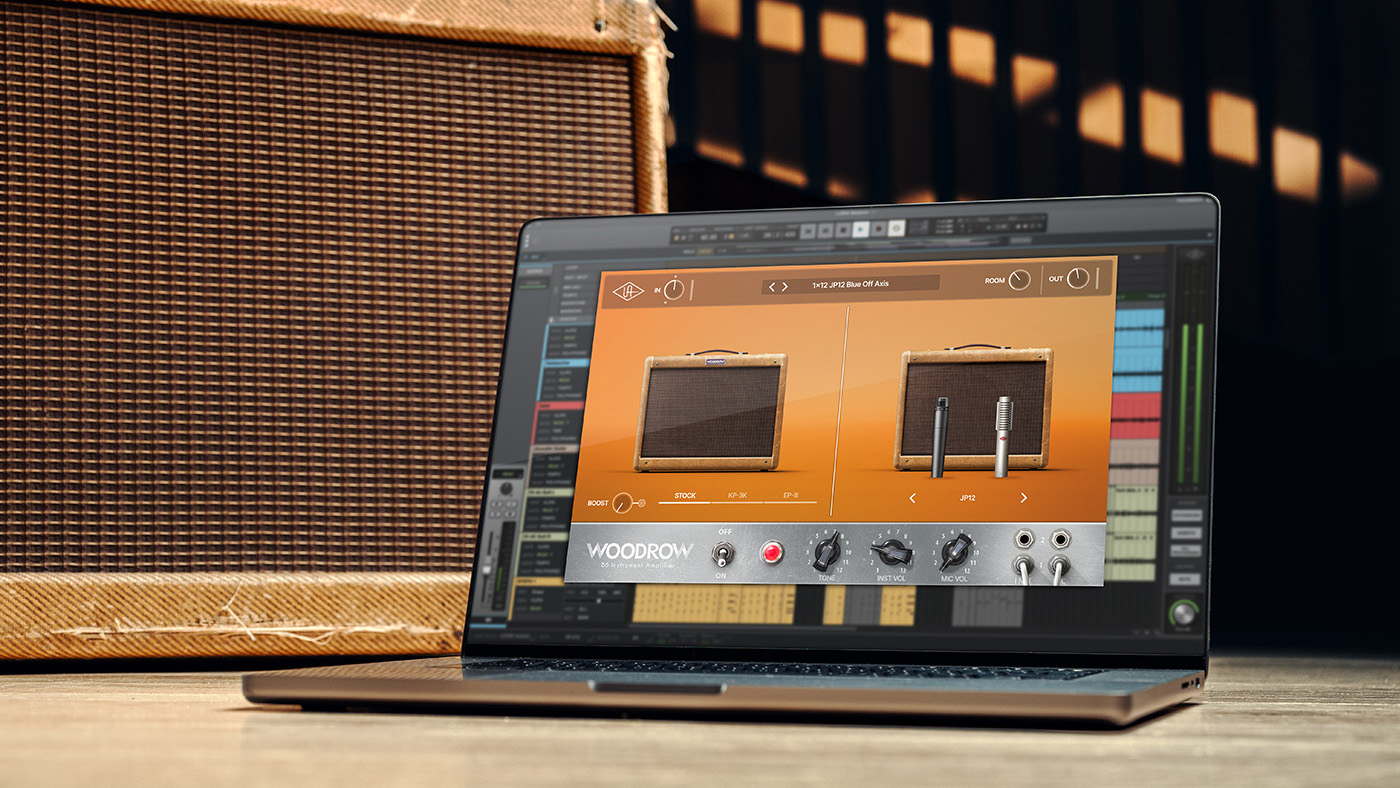Les Claypool: “I always squirm when people say ‘slap bass’! It's thumpin’ and pluckin’”
Talking technique, gear and groove with the Primus legend

Among his multiple musical collaborations, writing novels, fly fishing and making his own wine, Les Claypool has somehow found the time to reunite with Primus, the band that in bass world at least, made him a household name.
The ever-indescribable band’s latest album - their ninth - reunites Claypool with the classic line-up of drummer Tim Alexander and guitarist Larry LaLonde, and finds the trio venturing into some distinctly progressive territory.
It’s hardly surprising, really, when you consider that it is based on Ul de Rico’s children’s book, a beautifully illustrated tale from 1978 that features a group of goblins sucking all of the colour out of the world. The idea that such an album could be anything progressive/ alternative/really quite strange certainly amuses Claypool, who argues: ‘When you’re writing about goblins and rainbows, there aren’t going to be too many disco beats, are there?’
This is the first album of original Primus material in quite a few years, Les. What led to you guys going back into the studio?
When you’re writing about goblins and rainbows, there aren’t going to be too many disco beats, are there?
“Well, it was just time to do so. It just was time, haha! But I really wanted to do this project: this was something that I had been thinking about for a number of years, and as I’m moving through life I’m realising that I need to start knocking some of these things off my list.
“So I wrote the first song, The Storm, and initially I wasn’t sure if this should be a Primus record, or something I should do with Sean Lennon for our Claypool Lennon Delirium project. I played that song for Larry over the phone and he flipped out; he loved it. I was worried that it might be a little too art-rocky or whatever, but he loved it, so we decided to do it as a Primus project.”
Tell us about the story behind The Desaturating Seven.
Get the MusicRadar Newsletter
Want all the hottest music and gear news, reviews, deals, features and more, direct to your inbox? Sign up here.
“Many years ago, when my kids were little sprouts, they’d get read to every evening - and this was one of the books my wife had known when she was a kid. The imagery is incredible, this guy Ul de Rico painted these incredible oil paintings on wooden panels, and there’s a lot of colour to them, but there’s also this darkness, a contrast between colour and black. They’re really creepy, yet beautiful, and there’s a very interesting storyline that’s incredibly relevant to the world today, and it just seemed that it needed music put to it. And I’m the guy that did it!”
It sounds like you’re playing chords in The Seven. What’s your approach to playing chords on the bass?
“It depends. On that one I think I’m just doing the root and the third, playing the third up on the G string. I’m also plucking them rather than strumming them.”
The conversation
As a bass player do you find that you react differently to the drummers you work with, and if so, what are those differences?
“Well, I like to use the conversation metaphor quite a lot. When you’re playing music, especially if you’re trying to be spontaneous, it’s very much a conversation - so having conversations with different individuals is going to be very different. Doing an interview with you is pretty different to the interview I did 10 minutes ago. You’re going to go down different paths, you’re going to touch on different subjects.
When you’re playing music, especially if you’re trying to be spontaneous, it’s very much a conversation
“With a lot of the players that I’m attracted to, I tend to like people who have a unique signature and a unique sound, and Tim obviously has that. It’s different playing with him than it is with [previous Primus drummer Jay Lane. You’re going to get similar things because of where the jumping-off point is, but they both have very strong thumbprints so you’re going to get their interpretations. They’re going to have their own voice.”
Which basses have you used on the new album?
“I mostly just used my new four-string Pachyderm basses, which are the basses that I designed. It’s one that I had designed for the Lennon Delirium project, but it wasn’t finished in time to use it for that, so I think this is the first album that I’ve recorded with it. The tonality of it I just love, it’s the tone I’ve been searching for for the past 30 years and I finally fucking got it. I also used my Carl Thompson six-string quite a bit, as well as my NS upright bass on a couple of the tracks.”
Tell us about the process of writing the songs.
“Well, all of the songs were initially me sitting down and trying to interpret parts of the book. I broke the book down into six different sections and I just said: ‘This part needs to represent the battle, this part needs to represent the journey, this part needs to represent the dream…’ hence the cryptic titles!
“I think The Trek was the second song that I wrote, the first one was The Storm, because that one is the big climax, the one I had to write to get the foundation for what we were gonna do. So I just had to think, what is a journey? What is a trek? How would that sound?”
What’s happening with the opening to The Dream?
“That part is a bass loop. I came up with that on my Boomerang looper pedal, which tends to enter into my world quite a lot.”

Working out the demons
How did you get started with slap technique? Who were your influences?
“I always squirm when people say ‘slap bass!’ I was a guy who grew up watching Larry Graham, and he used to have a song called The History Of The Bass, and in that song he talks about the thumpin’ and the pluckin’.
“When I was a kid in high school back in the late-'70s, I remember seeing Louis Johnson on [a TV variety show] and he was definitely thumping the bass; like I say, they always called it thumpin’ and pluckin’. I never even heard the ‘slap bass’ term until the '90s, when all of a sudden there were guys like me coming into the public eye.
That’s how I got good: working out my demons through my instrument
“It was amazing to watch Larry play, because he doesn’t pluck as much as you think; almost everything he’s doing is with his thumb. For me, it was Louis Johnson, Larry and Stanley Clarke as far as the thumpers. There was also a guy named Dexter Redding who was Otis Redding’s son, he was phenomenal. I tried to cover one of his songs, The Awakening, and I kind of bastardised it.”
You seem to use fretting hand slaps quite a bit, such as in Lacquer Head. Was this something you found yourself, or the influence of another player?
“I think a lot of people do that. It’s really just another percussive element, Stanley Clarke used to do a lot of that back in the day. For me, it’s similar to what a lot of the metal guys did in the early days: they found they got more power out of muting the note, so I do that quite a bit with my thumb.”
Do you have any advice to share with young bass players?
“Practise. How’s that? Haha! You know, bass just happens to be the crayon I pulled out of the box. If I was playing trumpet or accordion I would be making similar music, but just a different timbre.
“For me, my bass was my therapy going through high school, because those are some interesting times! Any time I got dumped by some girl or had an issue with my parents or whatever, I’d just sit there and play the shit out of my bass. That’s how I got good: working out my demons through my instrument. But my overriding philosophy for anyone who’s learning an instrument is simply to play because you want to play. That’s it!”
The Desaturating Seven is out now on ATO Records.


“Every note counts and fits perfectly”: Kirk Hammett names his best Metallica solo – and no, it’s not One or Master Of Puppets
“I can write anything... Just tell me what you want. You want death metal in C? Okay, here it is. A little country and western? Reggae, blues, whatever”: Yngwie Malmsteen on classical epiphanies, modern art and why he embraces the cliff edge









